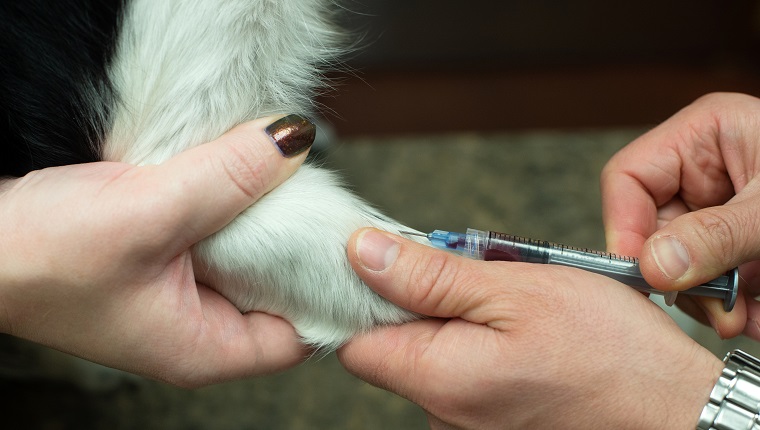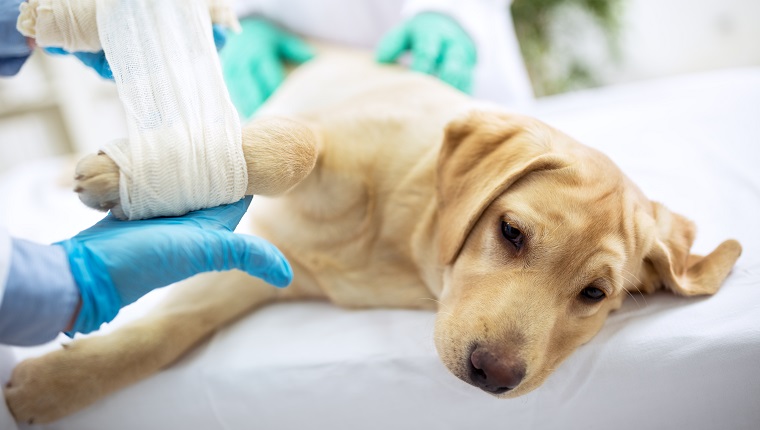Clotting deficiency in dogs is a medical situation that comes about when a dog’s blood is unable to clot effectively. It is often an inherited condition.
When blood thickens and clots, it helps to heal and seal up wounds. But if a dog suffers from this condition, that process cannot happen. In turn, dogs can go on to develop blood loss anemia and even internal hemorrhaging.
If you see signs that your dog’s blood cannot clot effectively, then you must consult your veterinarian for a proper diagnosis and advice. Here’s what you should know about the symptoms, causes, and treatments of clotting deficiency in dogs.
Symptoms Of Clotting Deficiency In Dogs
Clotting deficiency in dogs principally produces the symptom of bleeding that does not stop.
Some of the other symptoms that can arise due to internal bleeding and blood loss anemia include:
- Shortness of breath
- Drinking more water than usual
- Vomiting (with blood)
- Blood present in poop
- Irregular heartbeat
- Acting lethargic and weaker than usual
Causes Of Clotting Deficiency In Dogs

The cause of clotting deficiency in dogs can often be hereditary.
Some of the non-inherited causes can include:
- Ingesting rat poison
- Vitamin K deficiency
- Being bitten by a snake
- Long-term use of antibiotics
Treatments For Clotting Deficiency In Dogs
If you suspect that your dog is developing clotting deficiency, your veterinarian will want to carry out a number of blood tests. They’ll also analyze the ability of your dog’s blood to clot.
When it comes to treatment, vets take the severity of the condition into account. In extreme cases, dogs may need a spell in hospital so they can undergo a blood transfusion.
In many cases, adding vitamin K supplements to your dog’s diet can help out with clotting issues. As ever, if your vet recommends adding any supplements to your dog’s diet, make sure that you follow the dosage and frequency instructions precisely.
In general, dogs who have suffered from this condition should keep up regular appointments with their vet so that their blood can be monitored.
Has your dog suffered from clotting deficiency? Did your vet recommend any supplements or diet changes to help with the issue? Tell us all about it in the comments below.









